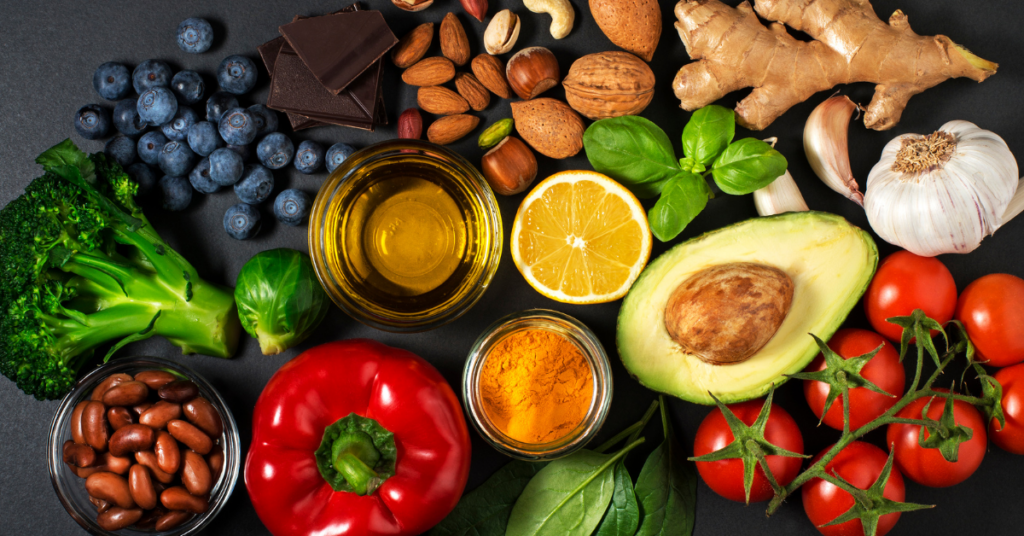When you’re struggling with infertility, it’s easy to turn to comfort foods. Cheeseburgers, fries, and ice cream may temporarily make you feel better on rough days. Steak dinners and wine seem like a great way to jumpstart a romantic evening. And if you’re undergoing fertility treatments, it’s tempting to pick up convenient meals on the go between appointments.
However, what you eat has a bigger impact on your fertility than you may realize. That’s why it’s so important to make healthy choices when you’re trying to conceive. Focus on foods that nourish your body, balance your hormones, improve your fertility, and prepare you for pregnancy.
Fruit
Fruit is one of the best things you can eat for optimal fertility. It’s delicious, packed with vitamins, and contains antioxidants and phytonutrients that help your body stave off damage from free radicals and inflammation. Plus, studies have found that women who typically eat lots of fruit, on average, conceive in less time than those who don’t eat as much fruit.
It’s helpful to aim for at least two servings of fruit per day. Whole fruits, like apples or oranges, make great snacks. Alternatively, add cut fruit to your cereal, yogurt, or salad. Short on time? Smoothies are a great way to consume your favorite types of fruit at once.
Good Fats
Although you should definitely stay away from saturated and trans fats when you’re trying to conceive, certain fats can help you reach your optimal fertility. Healthy fats in nuts, seeds, avocados and olives reduce inflammation in your body, help regulate your blood sugar, and may help you lose weight.
Foods containing healthy fats are easy to add to dishes you already love. Try topping your sandwich with avocado slices, add seeds and nuts to your salad, or use olive oil in place of canola oil or butter.
Eggs
Eggs are a great food to eat for optimal fertility because they contain nutrients like protein and vitamin D, essential for fertility. Eggs also have high levels of the nutrient choline, which is known to protect against birth defects. Be sure to eat the entire egg because the majority of the choline is in the yolk. If you don’t like yolks on their own, try making scrambled eggs, omelets, or frittatas..
Leafy Green Vegetables
Leafy green vegetables are powerhouses of nutrition and an excellent choice for optimal fertility. They have anti-inflammatory effects, contain loads of antioxidants, and are a great source of iron and calcium. Leafy greens also provide you with folate, which is essential for both your fertility and your baby’s brain development.
Do your best to eat lots of leafy greens every day. Kale salads, spinach omelets, and brown rice with collard greens are delicious options.
Fiber
Eating high fiber foods is particularly important if you face fertility challenges due to hormonal imbalances. Fiber helps your body regulate your blood sugar and insulin, and also helps you maintain a healthy weight, which further helps regulate your hormones. That’s especially important if you have conditions like polycystic ovary syndrome, which can negatively impact your fertility.
Research has also shown that people who consume large amounts of fiber typically have lower rates of infertility than those who consume less fiber.
Full-Fat Dairy
Full-fat dairy is a great source of vitamin D and calcium, and has been shown to improve fertility for women. However, it’s important to consume in moderation because it also contains saturated fat.
If you want to enjoy full-fat dairy but worry about consuming too much, try combining it with other fertility-friendly foods. For example, try whole grain cereal with whole milk and berries, Greek yogurt with peaches and granola, or a salad topped with a serving of feta cheese.
Beans and Legumes
Beans and legumes are filling, delicious foods that are also great for your fertility. They contain plenty of protein and plant-based iron, shown to be better for your fertility than animal-based sources. Beans and legumes also have an abundance of B vitamins, fiber, and folate, making them some of the best foods to eat for optimal fertility.
Try adding chickpeas to your salads, enjoying a hearty lentil soup, or indulging in a black bean burger with avocado and spinach.
Salmon
If you love fish but don’t love the idea of being exposed to high levels of mercury, salmon is an excellent choice. It’s full of omega-3 fatty acids and DHA, helpful for overall health and fertility, and with important nutrients for your developing baby.
But even salmon, which contains small amounts of mercury, should be eaten in moderation. Two or three 3 oz servings of salmon per week is typically a good amount. In addition to baking or grilling salmon, try salmon patties or salmon kebabs for a delicious twist.
Walnuts
As long as you’re not allergic, you should eat a serving of walnuts every day for optimal fertility. Like salmon, walnuts are an excellent source of omega-3 fatty acids, and are high in fiber and magnesium, which helps prevent pregnancy cramps. They’re great as a snack or as a topping on salads and yogurt.
When you do become pregnant, magnesium plays an important role in protecting your baby from neurological problems.
You are What You Eat
What you eat is important for achieving optimal fertility, so strive to include all the foods–and tasty options–options from this list. If you have allergies or dietary restrictions, talk to your doctor about alternative sources of the nutrients you need to support your fertility.
At Halo Fertility, we know that no two patients, and no two treatment plans, are the same. We’ll take the time to discuss your diet and lifestyle during your fertility assessment and help you come up with a dietary plan that meets your specific fertility needs. Schedule an appointment today with our fertility physician in Rolling Hills Estates, California to begin.







